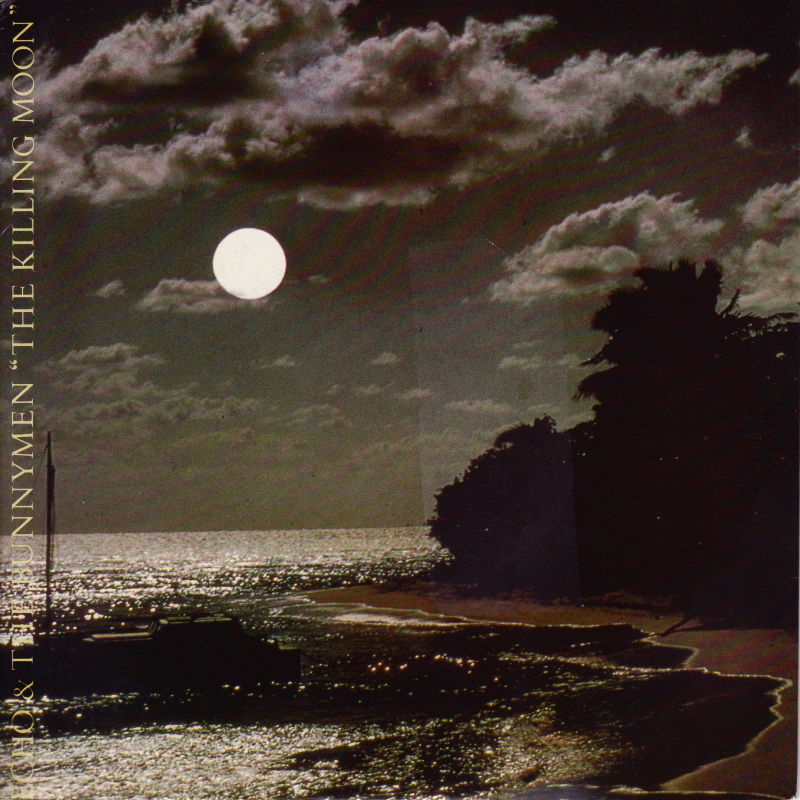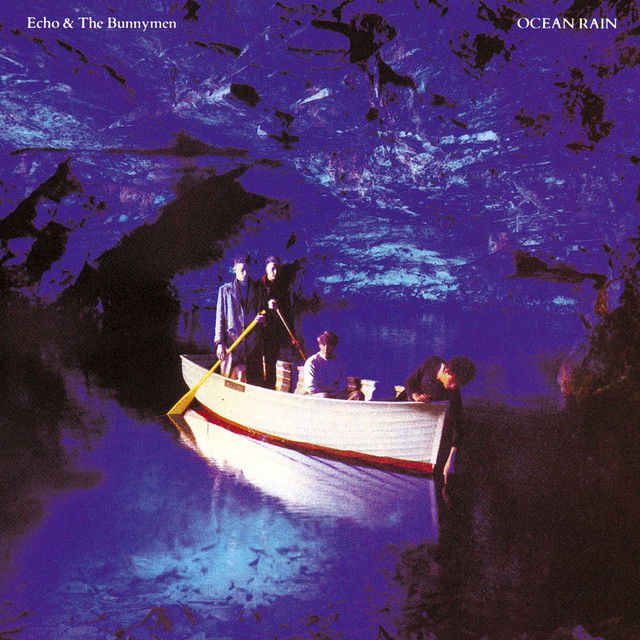Song Stories: Echo & the Bunnymen: The Killing Moon
Few songs hit quite like Echo & the Bunnymen’s 'The Killing Moon' moody, dramatic, and utterly unforgettable. Released in 1984 as the lead single from their fourth studio album, 'Ocean Rain', it’s the track most people still associate with the band—and for good reason. From its swirling strings to its cryptic, dream-born lyrics, it captures everything that made the Bunnymen so compelling at their creative peak.
Frontman Ian McCulloch famously claimed that the song’s unforgettable chorus—“Fate up against your will / Through the thick and thin / He will wait until / You give yourself to him” came to him in a dream. He woke up in the middle of the night, scribbled the words down on a piece of paper by his bed, and never changed a single line. For McCulloch, this wasn’t traditional songwriting; it was more like receiving a message, a lyric delivered by some divine force in a dreamlike state. The weight and inevitability of those words felt otherworldly as if they existed independently of him, waiting to be uncovered rather than created.
This powerful moment of inspiration shaped the entire mood of 'The Killing Moon'. McCulloch has said it felt like fate itself was speaking through him—a reminder that some things lie beyond human control. That theme runs deep in the song: surrendering to forces greater than ourselves, whether fate, love, or destiny. The mysterious origin of those lines adds to the track’s mythic aura, giving it an almost sacred quality that still resonates decades later.
“I’ve always thought God wrote it,” McCulloch said in an interview years later. In the album credits, he backed that up by listing God as a co-writer alongside himself, Will Sergeant, Les Pattinson, and Pete de Freitas. Whether tongue-in-cheek or sincere, it only added to the track’s legendary status.

But spiritual inspiration wasn’t the only unexpected influence. The musical DNA of 'The Killing Moon' can be traced back to another celestial work David Bowie’s 'Space Oddity'. Guitarist Will Sergeant revealed that the song’s distinctive chord progression came from playing Bowie’s classic backwards.
The band were experimenting in the studio when Sergeant reversed the chords, and something just clicked it sounded strange, but beautiful. They built on that idea with layers of mood and melody. The song came together like a dark spell: minor chords, echoing arpeggios, and string arrangements that seemed to stretch out into infinity.
The track formed in a rush of momentum. Les Pattinson’s brooding bassline set the tone, anchoring everything in a deep, slow groove. Pete de Freitas’s drumming gave it a funeral-march rhythm unhurried but inescapable. Over that, Sergeant added his trademark shimmering guitars, drenched in delay and mystery. And then came the strings, recorded with a 35-piece orchestra in Paris, giving the track—and the album it lived on a rich, cinematic atmosphere.
'Ocean Rain' was no small undertaking. McCulloch famously declared it “the greatest album ever made” a bold statement that turned some heads but perfectly captured the band’s soaring ambition at the time. They weren’t interested in just writing catchy pop songs or chasing trends; they wanted to create something far grander something timeless, dramatic, and deeply orchestral. Their goal was to craft a record that felt less like a product of its moment and more like a lost classic, as if it had always existed somewhere in the musical ether, waiting to be discovered.
The band threw themselves into the project with a cinematic mindset, employing lush arrangements and a 35-piece orchestra recorded in Paris to build an atmosphere unlike anything else in the post-punk and new wave scenes. The sweeping strings, haunting melodies, and rich textures combined to elevate 'Ocean Rain' into a work of art—one that balanced melancholy and grandeur, intimacy and epic scale. It was a fearless leap into territory few British alternative bands dared to explore, and it paid off by giving Echo & the Bunnymen a sound that still resonates as uniquely their own.

Tracks like 'The Killing Moon' and 'Seven Seas' showcase this orchestral ambition perfectly. While 'The Killing Moon' swells with dramatic tension and mysterious lyricism, 'Seven Seas' offers a more buoyant, almost jaunty counterpoint still rich with poetic imagery and underpinned by a dynamic rhythm section. The interplay between the lush strings and the band’s core sound on both tracks exemplifies the album’s ability to marry grandeur with intimacy, creating an immersive listening experience that has captivated fans for decades.
'The Killing Moon' is the heart of that album, a song soaked in atmosphere and filled with shadows. It sounded like nothing else on the radio in 1984, and even now, it stands apart. It’s gothic without being goth, psychedelic without being retro, and romantic without being sentimental. It feels like a lost classic from another era entirely.
Upon release, 'Ocean Rain' received widespread critical acclaim, with many praising its ambitious production and emotional depth. While it didn’t top the charts, it secured a devoted fanbase and has since been hailed as a landmark album of the 1980s alternative scene. Its cinematic qualities and orchestral arrangements influenced a wide range of artists from later alternative and indie bands to orchestral pop acts.
Musicians have cited the album as an inspiration for blending rock with classical elements, paving the way for bands to explore more expansive, dramatic soundscapes.
When 'The Killing Moon' was released as a single, it climbed to No. 9 on the UK Singles Chart, giving Echo & the Bunnymen their highest-charting single to date. It was a moment of real mainstream recognition for a band that had long operated just outside the pop spotlight. Suddenly, they weren’t just cult heroes they were chart contenders.
It’s one of those songs that seems to grow in stature with every passing year not because of nostalgia, but because it still sounds fresh, mysterious, and totally original. Put it on today, and it still casts the same spell it did 40 years ago.
Thank you for reading
Jack